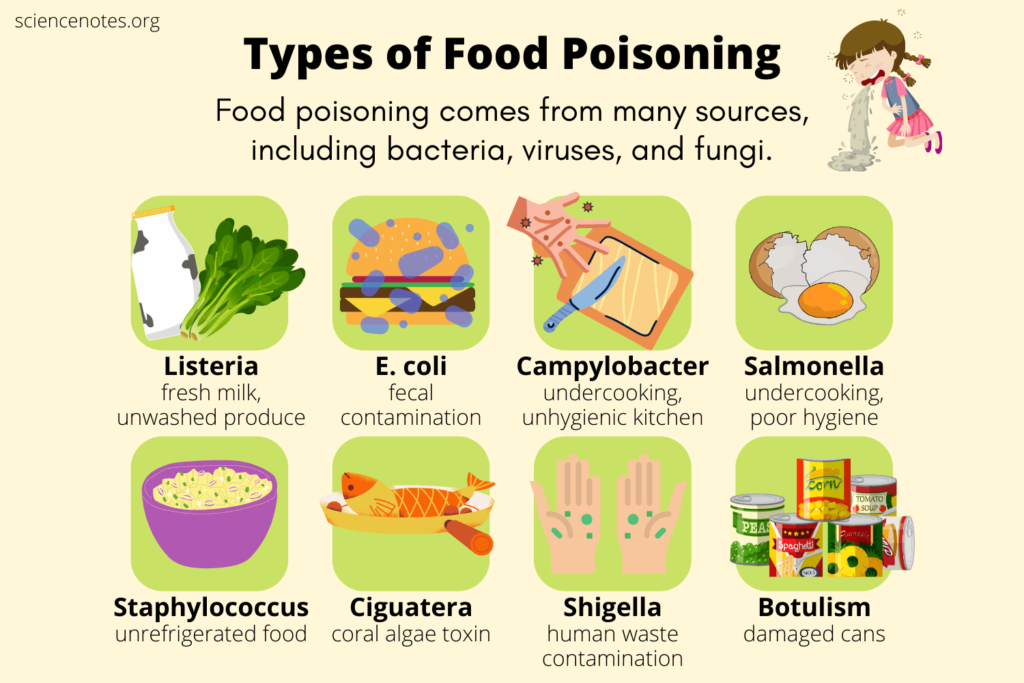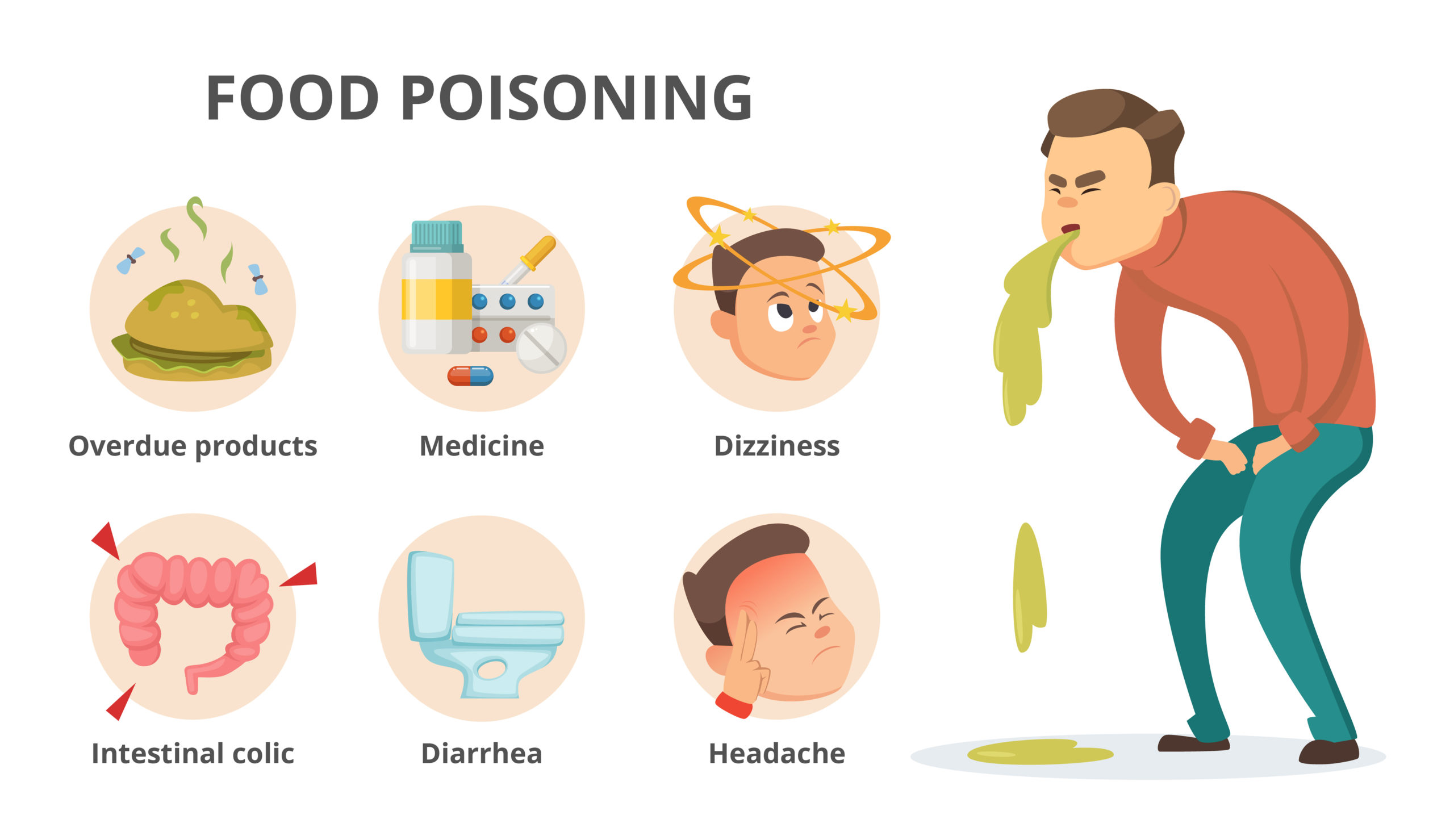Introduction:
Food poisoning, also known as foodborne illness, is an illness caused by consuming contaminated food or beverages. It occurs when food is contaminated with harmful bacteria, viruses, parasites, toxins, or chemicals that can cause illness in humans.
These contaminants can enter the food at any stage, from production and processing to preparation and storage.
There are some common causes of food poisoning include:

1. Bacteria:
Various types of bacteria can contaminate food, such as Salmonella, Escherichia coli (E. coli), Campylobacter, and Listeria monocytogenes. These bacteria can multiply in food under certain conditions and cause illness when ingested.
2. Viruses:
Viruses like norovirus, rotavirus, and hepatitis A can be transmitted through contaminated food or water. These viruses can cause gastrointestinal symptoms and are highly contagious.
3. Parasites:
Parasites like Giardia, Cryptosporidium, and Toxoplasma can contaminate food, especially fruits, vegetables, and undercooked meats, and cause illness when consumed.
4.Toxins:
Toxins produced by bacteria, such as Staphylococcus aureus and Clostridium botulinum, can contaminate food and lead to food poisoning. Toxins from marine organisms like shellfish and certain fish can also cause poisoning if consumed.
The symptoms of food poisoning can vary depending on the type of contaminant and the individual’s susceptibility, but common symptoms include nausea, vomiting, diarrhea, abdominal pain, fever, and in severe cases, dehydration and other complications. The onset of symptoms can range from a few hours to several days after consuming contaminated food.
How to prevent Food Poisoning?
Preventing food poisoning involves practicing good hygiene, proper food handling, safe storage, thorough cooking, and being cautious when consuming raw or undercooked foods. It’s essential to follow food safety guidelines and stay informed about food recalls and advisories to reduce the risk of foodborne illnesses.
To avoid food poisoning, it’s important to follow proper food handling and safety practices.
Important points to help you prevent food poisoning:
1. Cleanliness and Hand Hygiene:
Wash your hands thoroughly with soap and warm water for at least 20 seconds before handling food and after handling raw meats, using the restroom, or touching any potentially contaminated surfaces.
Keep your cooking and eating areas clean by regularly sanitizing countertops, cutting boards, utensils, and other food preparation surfaces.
2. Safe Food Storage:
Store raw meats, poultry, seafood, and eggs separately from ready-to-eat foods to prevent cross-contamination.
Keep perishable foods refrigerated at or below 40°F (4°C) and use them before their expiration dates.
Avoid leaving perishable foods at room temperature for an extended period.
3. Proper Food Preparation:
Thaw frozen foods safely in the refrigerator, under cold running water, or in the microwave using the defrost setting.
Cook food thoroughly to appropriate internal temperatures. Use a food thermometer to ensure meats, poultry, seafood, and leftovers reach safe temperatures.
Avoid consuming raw or undercooked eggs, meats, poultry, seafood, and unpasteurized dairy products.
4. Be Mindful of Food Quality:
Purchase food from reputable sources and check for freshness. Avoid buying expired or damaged food products.
Inspect fruits and vegetables for signs of spoilage or damage before consumption.
Discard any canned goods with bulging or dented cans, as they may indicate bacterial contamination.
5. Safe Food Handling Outdoors:
When picnicking or having outdoor events, keep perishable foods in coolers with ice or freezer packs to maintain a safe temperature.
Avoid leaving food sitting out in hot temperatures for too long.
6. Practice Safe Eating Out:
Choose restaurants and food establishments with good hygiene practices.
Pay attention to food handling and preparation practices at buffets, salad bars, and other self-service settings.
Ensure that food is cooked thoroughly before consuming it.
7. Stay Informed:
Stay updated on food recalls and advisories to avoid consuming contaminated products.
Educate yourself about safe food handling practices and stay informed about food safety guidelines.
By following these guidelines, you can reduce the risk of food poisoning and promote safe and healthy eating habits.
